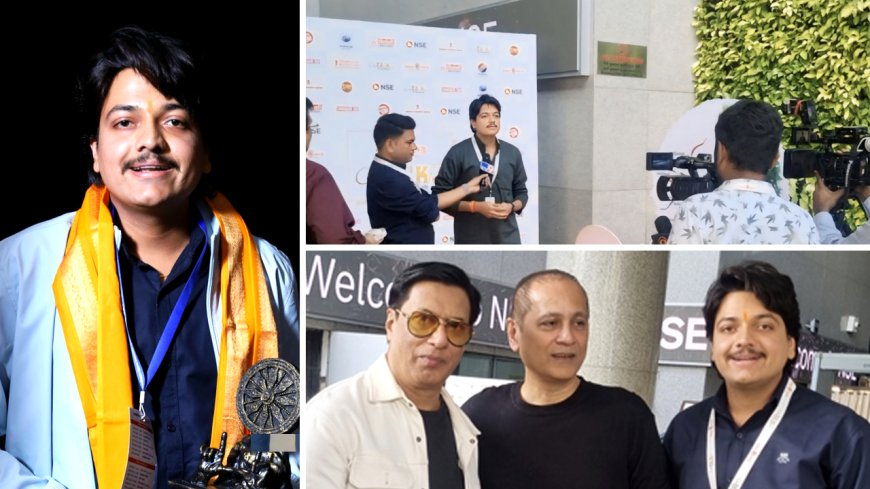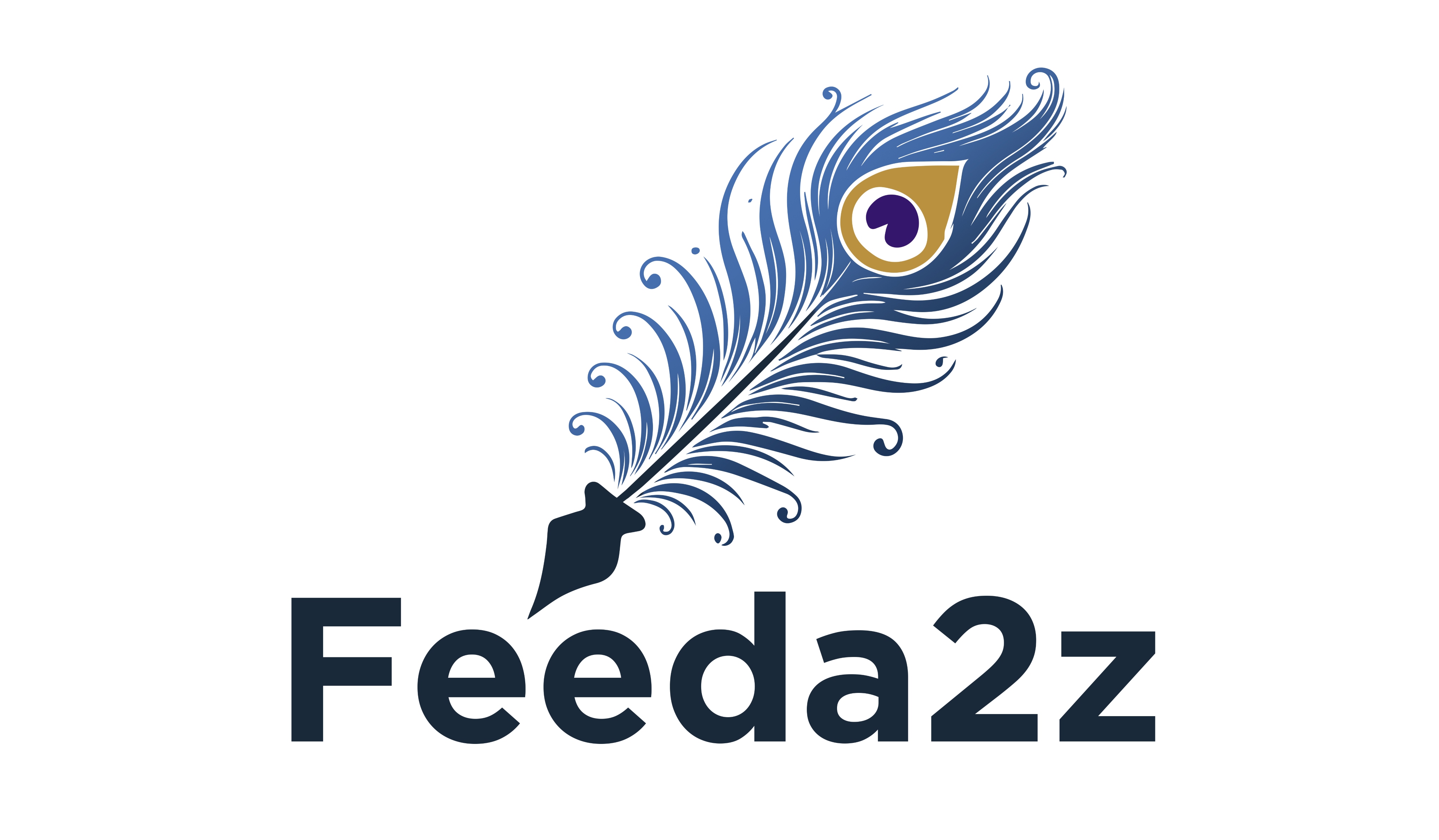Film Director Mahi Dubey: A Rising Star of Indian Cinema
Mahi Dubey, an independent filmmaker and editor, is making a distinctive mark in Indian cinema. Born on December 22, 2002, Mahi stepped into the field of filmmaking at a young age and showcased exceptional talent. In addition to being a skilled director, Mahi is actively involved in film editing and production. His production house, MD Arts Production, manages several YouTube channels and specializes in creating documentaries, ad films, and short films.

In 2024, Mahi received numerous awards for his films at various festivals, including the 5th Chitra Bharati Film Festival, Him Filmotsav, Avadh Film Festival, Mahakaushal Film Festival, Jaipur International Film Festival, Himachal Film Festival, Cinetone Awards, Kalakari Film Fest, and Ahmedabad International Film Festival.
'It’s Not Just a Painting' Wins Best Cinematography at Mahakaushal Film Festival
Mahi’s short film It’s Not Just a Painting earned the Best Cinematography award at the Mahakaushal Film Festival. Shot in Gwalior and Datia, Madhya Pradesh, the film reflects Mahi’s cinematic vision and technical expertise. Directed by Nitish Kumar from Bihar, with music by Bharat Kumar from Odisha and performances by Abhiraj Saxena, Vaishali Saxena, and Shiva, the film captivated audiences. The award ceremony featured distinguished guests, including Member of Parliament and renowned singer Manoj Tiwari, along with filmmaker Akash Aditya Lamba.
Mahi’s Perspective on Filmmaking
For Mahi Dubey, filmmaking is more than just technical knowledge—it is a responsibility toward society and the nation. He says, "Making films requires imagination and leadership. You must observe everything around you deeply. For example, if you’re traveling on a train in the morning, think about how you would depict this scene in a film—consider the camera angles, dialogue, and shots. A director is like the captain of a ship, guiding the team through experience and practice."
Mahi believes that life experiences significantly impact filmmaking and improve directorial skills. He advises film students to “speak less, listen more,” learning from others’ experiences. For him, the courage to learn independently is key to becoming a great director. While film schools are not mandatory, Mahi recommends self-learning through YouTube, online courses, practical experience, or mentorship under seasoned directors. However, he suggests institutions like FTII, SRFTII, and others for those seeking formal education.
Studying Indian and Global Cinema
Mahi emphasizes understanding the evolution of cinema, starting with Indian pioneers like Satyajit Ray, Dadasaheb Phalke, Tapan Sinha, Shyam Benegal, and Chetan Anand. He also highlights the works of Guru Dutt, Ritwik Ghatak, Mrinal Sen, Raj Kapoor, and Yash Chopra.
“Once you grasp Indian cinema, explore global cinema—from the Lumière brothers to the New Hollywood era,” he says. Mahi suggests delving into movements like Soviet Montage, German Expressionism, Italian Neorealism, Iranian Cinema, Egyptian Cinema, Dogme95, and Cannes-winning films to understand diverse styles and depths of cinema.
Got Inspired by Hindu Culture and Ramayana
Mahi’s filmmaking journey began at the age of 14, inspired by Ramayan by Ramanand Sagar. He recalls, “I used to watch Dara Singh as Hanuman in Ramayan. Inspired by him, I cast my younger brother as Hanuman and made a short film on the song Hanumat Bhare Udan, which I uploaded on YouTube. It earned recognition in my school and hometown of Guna, marking the start of my filmmaking journey.”
At 16, his short film Article 21 won seven awards, and his feature film Ticket: Ek Sangharsh remains a highlight of his career.
From Bollywood to Hollywood
Hailing from Guna, Madhya Pradesh, Mahi Dubey has not only established a name in Indian cinema but also on international platforms. He has worked on Hollywood projects as editor like Wild Indian, Awaye, Tan Man, Hollywood Laundromat, and Ultimate Invasion, gaining valuable industry-standard experience with Sound Tree Pictures based in the United States.
A Joint Family: Mahi’s Strength
Mahi credits his success to his deeply rooted values in Hindu culture and his joint family. “I am fortunate to have grown up in a joint family, blessed with the support of grandparents, uncles, aunts, and cousins. Whether it’s filmmaking or personal matters, we achieve everything together. This unity is our greatest strength,” he says.
He also acknowledges his parents’ unconditional support: “My parents never restricted my dreams. They gave me the freedom to pursue my passions, which has been the foundation of my success.”
Criticism of Leftist Propaganda in Cinema
Mahi critiques how leftist ideologies have influenced Indian cinema, stating, “After the 1940s-50s, leftist propagandists infiltrated Indian cinema, transforming it into Bollywood—a victim of leftist thinking and commercialism. Our films should portray Indian culture and values, uniting society and preserving our heritage.”
Mahakaushal Film Festival: A Platform for Cultural Cinema
Mahi expressed gratitude to the Mahakaushal Film Festival, which promotes culturally rooted cinema. This year, the festival received over 150 entries from across Madhya Pradesh, all reflecting Indian philosophy. Mahi asserts, “Now is the time to create films that uphold ‘Bharat Mata ki Jay' the glory to maa bharati and embody our traditions. Let’s be the audience for such films.”
A Message for Aspiring Filmmakers
Mahi Dubey’s message to youth is clear: “Filmmaking is a discipline. Learn it with independence and determination. Films are not just for entertainment; they are a powerful medium to unite and transform society.”







